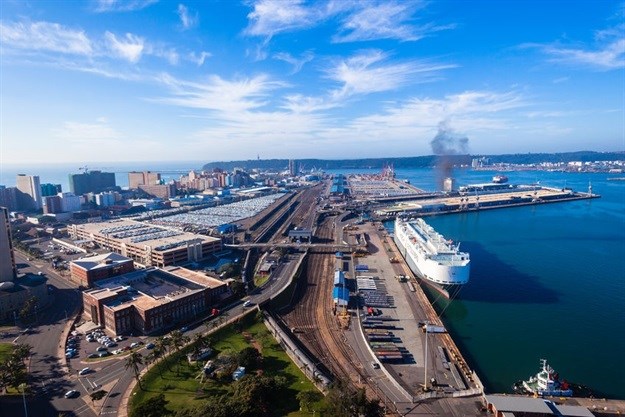
The enabling legislation for PRSA and Transnet National Ports Authority (TNPA) is the National Ports Act. Since its inception, the Regulator has developed directives for people interacting with PRSA, devised tariff assessment methodologies and compiled regulatory principles, which describe the approach that PRSA will generally adopt.
“Some issues with the legislation, however, have confused matters and limited the power of PRSA,” explained Andrew Pike, Bowman Gilfillan’s head of the Ports, Terminals and Logistics Corridors sector group. “For instance, the TNPA and PRSA report to different government ministers. The shareholding minister of the TNPA is the Minister of Public Enterprises while PRSA reports to the Minister of Transport.
“In addition, in terms of the NP Act, as soon as this Act took effect, the shareholding minister should have ensured that the necessary steps were taken for the incorporation of the National Ports Authority as a company.
“The TNPA, however, has never been corporatized, meaning that the Minister of Public Enterprises has effectively breached his obligations under the NP Act and is operating in a non-compliant environment. The consequence of this is that certain sections in the Act do not make sense. This makes it difficult for PRSA to interpret and to carry out its mandate.”
The main functions of PRSA include the economic regulation of the ports system, the promotion of access to ports and monitoring the activities of the TNPA.
“In this regard and on a positive note, over R5 billion has been saved over the past five years, thanks to the activities of PRSA. The latest decision by PRSA involving a zero per cent increase on cargo dues at the ports, but that still allows ZAR 2 billion profit to TNPA, has also been very well received.
“In addition, there have been several valuable determinations made by PRSA, most notably the Columbus Steel case, which concerned the cargo dues payable on the export of stainless steel.
“There have, however, been some cases that have been slow to conclude, for example the case concerning the charges raised for operation of a helicopter at Richards Bay, which has already taken six years. The delays to this and several other matters can most probably be attributed to the cumbersome structure of PRSA, coupled with delaying tactics adopted by lawyers acting for parties in these matters.”
PRSA must also hear appeals and complaints; consider proposed tariffs of the TNPA; promote regulated competition; and regulate the provision of efficient port services. Port services include things such as stevedoring, terminal operations and cargo storage.
“The problem with this mandate is that PRSA only regulates TNPA tariffs and it is not clear if there is in fact jurisdiction over other port service providers, especially terminals. There is possibly indirect jurisdiction but it has never been made clear. There is also concurrent jurisdiction with the Competition Commission, which has caused more confusion.”
When it comes to running the PRSA, up to 12 members must meet to make a decision for the Regulator. “The problem with these member appointments is that with the exception of the CEO, they are all part-timers. The CEO thus has difficulty getting decisions made and it is very difficult to get everyone together. PRSA needs some full-time members and a full time tribunal in order to be effective.
“The challenge here is that PRSA has to convene a meeting, even for a tribunal hearing, and has to have a minimum of half the Regulator members present. Arguably, this means the CEO can’t make a decision of any significance on his own.
In terms of appeals and complaints, the primary challenges are that they are limited in their scope and unenforceable other than by way of a court order affirming a decision of the Regulator.
In addition to its other powers in terms of the Act, PRSA may make an appropriate order in relation to any complaint, such as an interdict.
“The challenge here is that the order is not enforceable and parties have to go to court to make it enforceable against TNPA. In this regard, how do orders of the Regulator compare with Public Protector remedial orders for instance? Arguably, they will be binding in light of recent Constitutional Court Nkandla judgment.”
In terms of funding PRSA, most of the money comes from Parliament. Other funding comes from interest on investments and fees charged for the filing of complaints or appeals with PRSA.
“The problem with funding for PRSA is that it compromises its independence because it is beholden to the Department of Transport and the Treasury. In addition, it means it only gets what it is given, which is a fraction of the regulatory budget of TNPA. PRSA requires additional funding to carry out all of the compliance reviews with which it is charged. It has also challenges with unfunded posts and insufficient capacity.
“Possible solutions might be to impose a levy on all cargoes and Transnet, or use some other industry funding model but one has to be careful not to compromise independence or create ‘regulatory capture’ situation.
“It is clear that PRSA requires an independent and sustainable funding model to increase its resources and to enable it to carry out its full mandate. Corporatizing the TNPA should also be a priority. Amending the Act to give PRSA more powers of enforcement and make it more user-friendly would also be a welcome move. Ensuring that that TNPA is properly regulating Transnet Port Terminals (and indeed other terminals and port service providers) and that PRSA is monitoring and ensuring that TNPA implements its powers effectively would also be a welcome move,” concluded Pike.